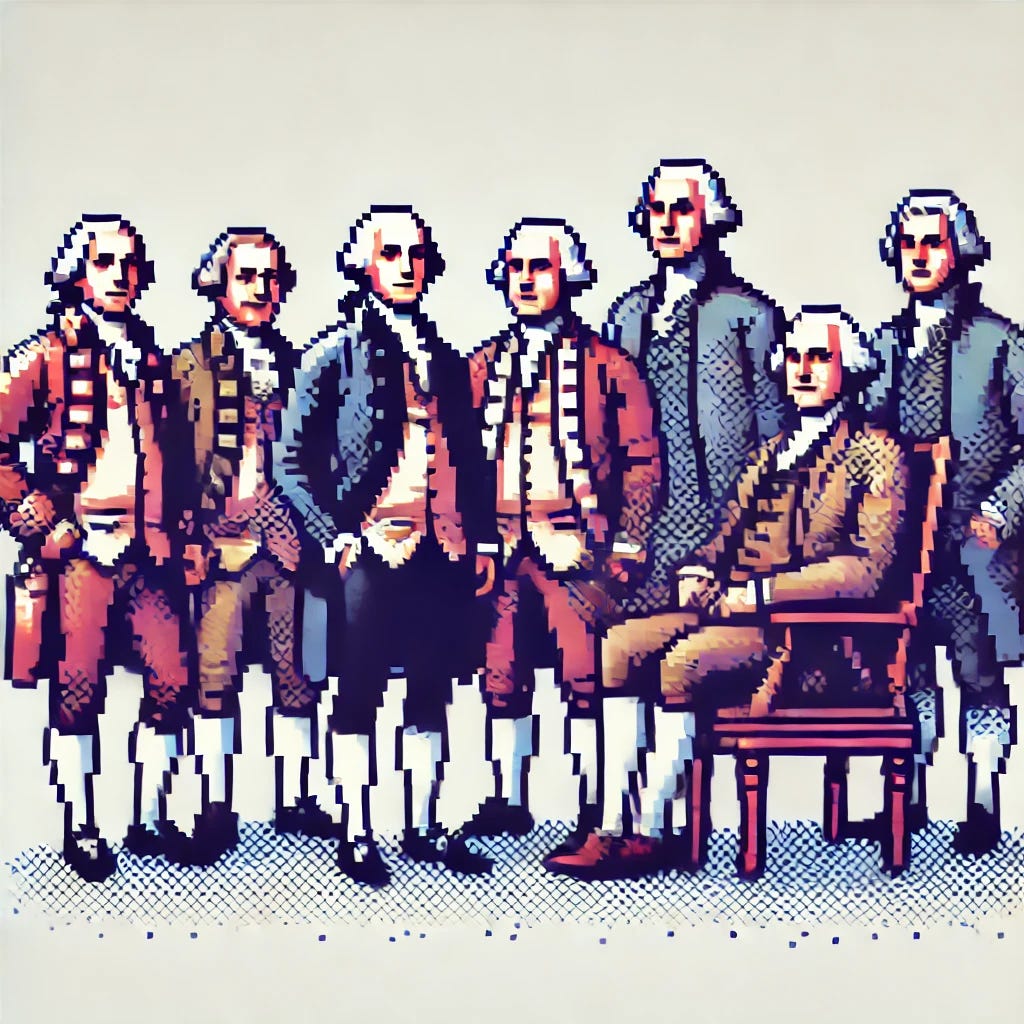Intertextuality
Writing and discourse communities
Hello Gorgias! is a weekly newsletter devoted to writing, rhetoric, and long-form argument. If you’re enjoying my posts, please consider becoming a subscriber.
A great library has been destroyed.
A monk is sifting through the wreckage, collecting fragments of burned parchment and assembling a “lesser library of fragments, quotations, unfinished sentences, amputated stumps of books.”
According to James E. Porter, the monk is a metaphor for the writer, assembling fragments of the past to create something new. Porter is using this scene from Umberto Eco’s fiction and drawing on structuralists and post-structuralists to argue:
All texts are interdependent
No text escapes intertext.
We understand a text only insofar as we understand it precursors.
The principle that all signs “arise" from a single network” is called intertextuality. Looking at texts “intertextually” means examining how writers take bits and pieces of other texts and sew them together to create something new. The most basic expression of this would be the citation, which stitches a text to its source.
Porter is arguing that writing always emerges as part of a longer discursive tradition. This means “the traditional notion of the text as the single work of a given author, and even the very notions of author and reader, are regarded as simply convenient fictions for domesticating discourse.”
Intertextuality can be expressed in one of two ways.
The first is iterability, or the repetition of certain textual fragments. This would include citations, quotations, cliches, common phrases, and traditional expressions that resurface across texts.
The second is presupposition, or the assumptions a text makes about its referent, audience, or context. These are the portions of the text which are read, but which are not explicitly there.
If someone tells you to turn the other cheek, for example, they’re citing the Gospel of Matthew (whether they realize it or not).
Declaration of Interdependence
Porter’s object of analysis (the primary exhibit he uses to test and demonstrate his theory of intertextuality) is the United States’ Declaration of Independence, which was written by Thomas Jefferson and famously declares “all men are created equal.”
According to Porter, Jefferson is the “author” of this document in only the loosest possible sense of the term.
As many folks already know, Jefferson is leaning pretty hard on John Locke’s theory of the social contract. However, Jefferson is also borrowing language from:
The First Continental Congress
A Massachusetts Council Declaration
George Mason’s “Virginia Declaration of Rights”
A political pamphlet from James Otis
A Pennsylvania Evening Post article
A colonial play
At the level of form, the document is modeled after England’s 1686 Bill of Rights. The phrase “all men are created equal” is a sentiment that had been expressed numerous times across history, while the famous phrase “life, liberty, and the pursuit of happiness” was a common cliché that appeared in many documents at the time.
Porter is not trying to attack Jefferson for being unoriginal. He’s making a broader point about the nature of authorship. When we say Jefferson “authored” the Declaration of Independence, we’re using convenient shorthand. In reality,
the Declaration of Independence rose out of a cultural and rhetorical milieu [...] Jefferson deserves credit for bringing disparate traces together, for helping to mold and articulate the milieu, for creating the all-important draft. Jefferson’s skill as a writer was his ability to borrow traces effectively and to find appropriate contexts for them.
This an altogether different way of thinking about creativity. Creativity is not the ability to create new sentences. It’s the ability to create new meaning.
This is what I mean when I say things like “originality is overrated.” Our writing is always influenced by what we’ve read, seen, heard, or discussed with others. There’s no way to filter out these influences. Our writing can be unique, creative, and insightful, but it’s never going to “original” in the strictest sense of the word.
Discourse Communities
True originality is impossible because writing always emerges from within “discourse communities.” When Porter uses the word “community,” he’s not talking about a community of shared beliefs. He’s talking about community the way a linguist might use this term.
A community, in this context, would be a group of people who share a common set of terms, a framework for communicating ideas, and formal or informal criteria for navigating disagreements and deciding who’s authorized to speak.
If you’ve ever attended a partner’s work event and suddenly felt like everyone around you was speaking a different language, you’ve entered into an unfamiliar discourse community. There are specific terms, codes, and procedures that mark insiders from outsiders, and people trying to be successful in that space are generally expected to learn them.
Crucially, through, a discourse community is a community of shared practice, not shared beliefs. There might be ideological assumptions or values embedded in these practices, but the practices themselves can be critiqued, changed, or challenged by the people using them.
If we think about science as a discourse community, there are lots of disagreements about what things mean or how to interpret evidence. But there are also formal and informal procedures for communicating new information, navigating disagreements, and deciding who is authorized to speak. Individual beliefs change in response to new data, but there’s an underlying set of methodological assumptions that remain relatively stable over time. This framework is what makes it possible to distinguish “science” from other types of discourse.
You’ll always be part of more than one discourse community. And there’s a lot of variation between them. Some are more established, or have more cultural capital than others. And the rules that govern discourse communities will vary: they can be rigid or relaxed, clearly spelled out or loosely defined, and lightly or heavily enforced.
Conclusion
If writers are always writing from within discourse communities, we’re inevitably going to borrow codes, traces, and ideas from other texts. We’re always going to be implicitly or explicitly referencing the discourse communities we’re part of or the ones we’re writing for.
It might seem constraining, but it’s actually a source of agency for writers. For one thing, we’re no longer laboring under the impossible burden of being original, which means we’re free to write things that are creative, unique, and generative.
We’re also freed to respond in our immediate rhetorical context. The audience enters into the text with expectations based on preexisting genre conventions, but we get to decide if, when, and how we decide to meet those expectations in our writing.





